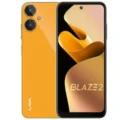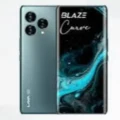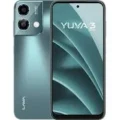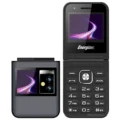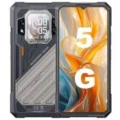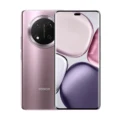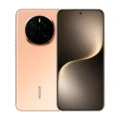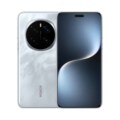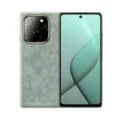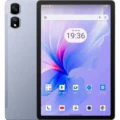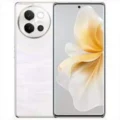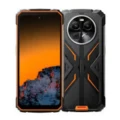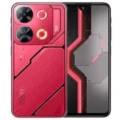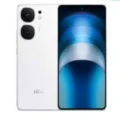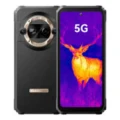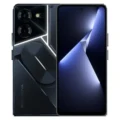Lava Yuva 3
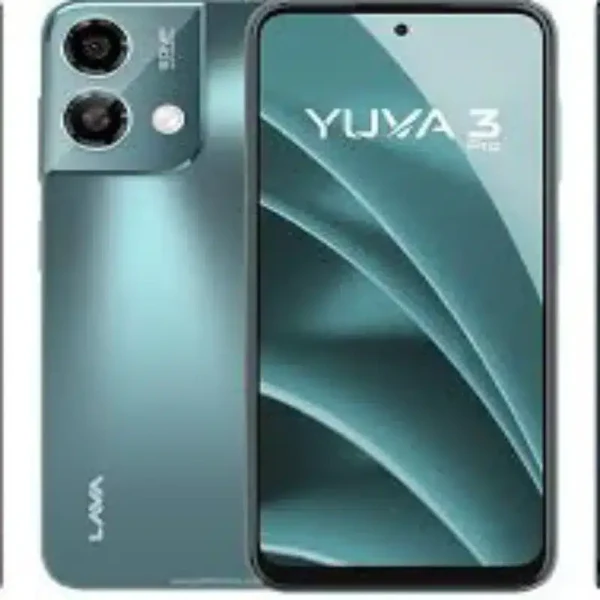

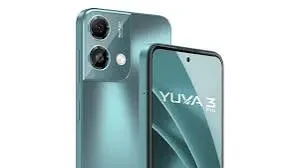

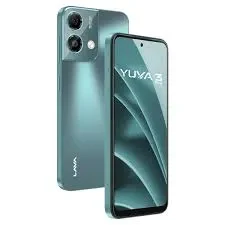

- : 4GB RAM Unisoc T606
- : 6.5" 720x1600 pixels
- : 5000mAh 18W
- : 13MP 1080p
The Lava Yuva 3 is a feature-packed Android smartphone designed to elevate your mobile experience. From its vibrant display to powerful internals, let’s explore what makes this device stand out:
Sleek Design
The Lava Yuva 3 boasts a sleek and modern design. Available in three captivating colors—Eclipse Black, Cosmic Lavender, and Galaxy White—this phone is a fashion statement in your hand. The glass back adds a touch of elegance, while the slim profile ensures comfortable handling.
Immersive Display
Enjoy content like never before on the 6.5-inch HD+ IPS display. With a 90Hz refresh rate, scrolling through apps, watching videos, and gaming feels incredibly smooth. The 720 x 1600 pixel resolution ensures clarity, and the 269 PPI density brings visuals to life.
Performance Powerhouse
Under the hood, the Lava Yuva 3 packs a punch. The UNISOC T606 Octa-core Processor ensures seamless multitasking, whether you’re browsing, streaming, or running apps. With 4GB of RAM, you’ll experience lag-free performance. Choose between the 64GB or 128GB storage variants to store your memories and files.
Photography Delight
Capture life’s moments with the 13MP + AI + VGA triple rear camera setup. From stunning landscapes to detailed close-ups, this camera system delivers. The 5MP front camera with screen flash ensures your selfies shine even in low light conditions.
Long-lasting Battery
The 5000mAh Li-Polymer battery keeps you connected all day. Whether you’re working, gaming, or chatting, the Lava Yuva 3 won’t let you down. And with the 18W charger, you’ll be back to full power in no time.
Connectivity and Extras
- 5G connectivity for lightning-fast internet speeds.
- USB Type-C for hassle-free charging and data transfer.
- Side fingerprint sensor and Face Unlock for added security.
- Stereo speakers for immersive audio.
Clean Android Experience
The Lava Yuva 3 runs on Android 13, providing a clutter-free interface. Say goodbye to bloatware and enjoy a seamless user experience.
Price
The Lava Yuva 3 offers exceptional value at approximately 200 EUR12. It’s the perfect blend of style, performance, and affordability.
Specs
Network
| 2G Network GSM 850 / 900 / 1800 / 1900 - SIM 1 & SIM 2 (dual-SIM) CDMA 800 / 1900 |
GSM 900 / 1800 - SIM 1 & SIM 2 |
| 3G Network |
HSDPA 900 / 2100 |
| 4G Network |
1, 3, 5, 8, 40, 41 |
| Speed |
HSPA, LTE |
LAUNCH
| Announced | February, 2026 |
| Status |
Available. Released 2024, February 07 |
BODY
| Dimensions | 164.2 x 76 x 8.5 mm (6.46 x 2.99 x 0.33 in) |
| Weight | 192 g (6.77 oz) |
| SIMs SIM (Subscriber Identity Module) is a small card that contains mobile network subscriber's account information. This allows the phone using the card to attach to a mobile network. The SIM card is most commonly associated with GSM and UMTS mobile networks. Moving a SIM card from one phone to another allows a subscriber to switch mobile phones without having to contact their mobile network carrier. SIM cards can also be used by a phone to store limited amounts of data, such as phone numbers and text messages. |
Dual SIM (Nano-SIM, dual stand-by) |
Display
| Display Type Display Technology => A number of display technologies and types used in mobile phones => TFT (Thin Film Transistor), IPS (In-Place Switching), OLED (Organic Light Emitting Diode), AMOLED (Active-Matrix Organic Light-Emitting Diode), Super AMOLED (an even advanced version of AMOLED), Resistive Touchscreen (Resistive touchscreens contain two layer of conductive material with a very small gap between them which acts as a resistance), Capacitive Touchsceen (Capacitive touchscreen technology consists of a layer of glass coated with a transparent conductor) | IPS LCD, 90Hz |
| Size | 6.5 inches, 102.0 cm2 (~81.7% screen-to-body ratio) |
| Resolution | 720 x 1600 pixels, 20:9 ratio (~270 ppi density) |
PLATFORM
| Operating System OS => Every computer system run on a base software called Operating System (OS). Operating System controls all basic operations of the computer (such as smartphone, PDAs, tablet computers and other handheld devices). The Operating System allows the user to install and run third party applications (apps), apps are used to add new functionality to the device. | Android 13 |
| Chipset Chipset is a group of integrated circuits designed to perform one or a more dedicated functions, often with real time computing constraints, Popular smartphones are equipped with more advanced embedded chipsets that can do many different tasks depending on their programming. | Unisoc T606 (12 nm) |
| CPU CPU (Central Processing Unit) mostly known as processors, CPU processes instructions in order to carry out certain functions that make your device operate properly. Processors are often described as the brain of computers, smartphones and tablets, Smartphones and tablets rely on processors to carry out their every task, Processors are an incredibly important factor in selecting any type of computing device, including your smartphone. | Octa-core (2x1.6 GHz Cortex-A75 & 6x1.6 GHz Cortex-A55) |
| GPU GPU (Graphics Processing Unit) is a single-chip processor designed to rapidly manipulate and alter memory to accelerate the creation of images in a frame buffer intended for output to a display, This includes things such as lighting effects, object transformations, and 3D motion. | Mali-G57 MP1 |
MEMORY
| Card Slot Memory Card Slot is a special slot for inserting a memory card. Memory cards allow you to expand the phone's built-in memory, A memory card (sometimes called a flash memory card or a storage card) is a small storage medium used to store data such as text, pictures, audio, and video, for use on small, portable or remote computing devices such as mobile phones, mp3 players, digital cameras. | microSDXC (dedicated slot) |
| Internal | 64GB 4GB RAM, 128GB 4GB RAM UFS 2.2 |
MAIN CAMERA
| Cameras Specs Today’s smartphones come equipped with a very comprehensive set of camera related specifications. Our smartphone, for many of us, has become our primary camera due to it being the one we always have with us. |
13 MP, (wide), AF VGA 0.08 MP (auxiliary lens) |
| Video | 1080p@30fps |
| Camera Features |
LED flash, HDR, panorama |
SELFIE CAMERA
| Cameras Specs Today’s smartphones come equipped with a very comprehensive set of camera related specifications. Our smartphone, for many of us, has become our primary camera due to it being the one we always have with us. |
5 MP |
| Video | Yes |
SOUND
| Loudspeaker | Yes |
| 3.5mm jack |
Yes |
COMMS
| WLAN |
Wi-Fi 802.11 b/g/n/ac |
| Positioning |
GPS, GLONASS |
| Bluetooth Bluetooth is a wireless communications technology for exchanging data between mobile phones, headsets, computers and other network devices over short distances without wires, Bluetooth technology was primarily designed to support simple wireless networking of personal consumer devices. | 5.0, A2DP, LE |
| Infrared Infrared connectivity is an old wireless technology used to connect two electronic devices. It uses a beam of infrared light to transmit information and so requires direct line of sight and operates only at close range. | |
| USB | USB Type-C 2.0, OTG |
| NFC NFC (Near field communication) is a set of standards for smartphones and similar devices to establish peer-to-peer radio communications with each other by touching them together or bringing them into proximity, usually no more than a few inches. | |
| Radio |
Features
| Sensors Sensors are electronic components that detects and responds to some type of input from the physical environment. The specific input could be light, heat, motion, moisture, pressure and location, The output is generally a signal that is converted to use in computing systems, a location sensor, such as a GPS receiver is able to detect current location of your electronic device. |
Fingerprint (side-mounted), accelerometer, proximity |
BATTERY
| Battery Type Battery Type => Cell phones run on various kinds of batteries depending on the manufacturer, phone size or shape and features. There are basically four types of cell phone batteries => Lithium Polymer, Lithium Ion, Nickel Metal Hydride and Nickel Cadmium. | Li-Poly (Lithium Polymer) |
| Capacity Battery Capacity is a measure (typically in Amp-hr) of the charge stored by the battery, and is determined by the mass of active material contained in the battery. The battery capacity represents the maximum amount of energy that can be extracted from the battery under certain conditions. | 5000 mAh |
| Placement | non-removable |
| Charging The functionality responsible for recharging batteries in portable devices, such as mobile phones, significantly influences both battery lifespan and the practicality of daily product usage.The charging process, encompassing factors like voltage, current, and completion actions, is contingent upon the battery's size and type.Contemporary battery chargers dynamically adjust charging parameters based on the battery's current charging state. Charging an empty battery poses no safety risk, allowing for a quicker charging process. Consequently, many charging speed benchmarks, including ours, specify the battery level achieved after a 30-minute session on an empty battery.Standard chargers with a power output of 5V/1A, equivalent to 5W, serve as a baseline, with anything surpassing this speed classified as quick or fast charging. | 18W wired |
MISC
| Colors |
Eclipse Black, Cosmic Lavender, Galaxy White |
| Price | ₹ 6,799 |
TESTS
Reviews
Disclaimer Note
We strive to maintain accurate and up-to-date content on our website for general information purposes only. Please refrain from using the material for business, legal, or any other decisions.


